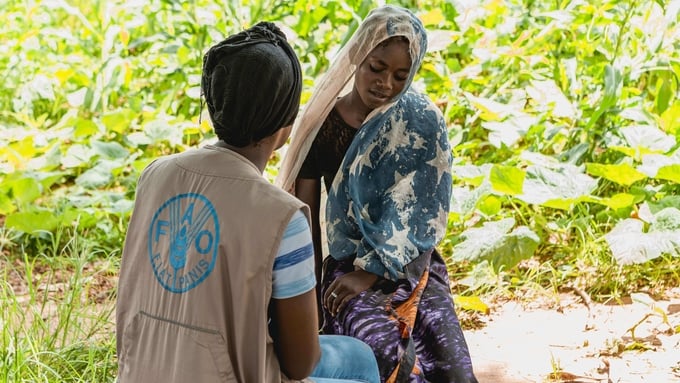November 28, 2025 | 02:30 GMT +7
November 28, 2025 | 02:30 GMT +7
Hotline: 0913.378.918
November 28, 2025 | 02:30 GMT +7
Hotline: 0913.378.918

Nearly 10 million people have been affected by a series of climate disasters across the region between January and March 2023. Photo: FAO/Fabio de Sousa
The Food and Agriculture Organization of the United Nations (FAO) has launched an urgent call for assistance for southern Africa which has been hit by a series of climate disasters since the start of the year that have upended the lives of millions of people.
Between January and March 2023, Tropical Cyclone Freddy – the most energetic cyclone to ever be recorded – and Tropical Storm Cheneso battered Malawi, Madagascar and Mozambique. At the same time, Zambia experienced destructive storms and torrential rains that resulted in severe flooding.
Critical social and economic infrastructure, fisheries equipment, livestock and hundreds of thousands of hectares of crops have been lost. Flooding also increased the movement of livestock and wild animals, triggering outbreaks of transboundary animal diseases. Overall, nearly 10 million people have been affected across the region.
“The food security and rural livelihoods of some of the most vulnerable people in the region have been severely jeopardized,” said FAO Sub-regional Coordinator for Southern Africa, Patrice Talla. “A scaled‑up and sustained emergency response is needed to enable people to pick themselves up and resume agricultural production,” he said.
FAO is requesting USD 247 million to support 2.5 million of the most vulnerable people in Malawi, Madagascar, Mozambique and Zambia struck by these climate shocks. Support will focus on restoring agricultural, fish and livestock production, along with conducting needs assessments and analyses to support a coordinated, scaled-up response.
FAO's emergency response is outlined in a new publication launched today, the Subregional southern Africa: Climate hazards - Urgent call for assistance.
In the southern African region, more than 70 percent of the rural population depends on agriculture for their livelihoods.
(FAO.org)

(VAN) A new study reveals how the simultaneous effects of ocean acidification, salinity and loss of oxygen are making the world more fragile.

(VAN) Hopes are growing that the creation of the first 3D turkey gut model could be a turning point in the battle against the virulent blackhead disease.

(VAN) Tyson, America’s biggest meat supplier, plans to shutter one of its largest beef processing plants as the industry continues to struggle with low cattle supplies and political pressure from Washington.

(VAN) New FAO study shows how digital solutions are empowering farmers and fishers to prevent losses and build resilient agrifood systems.

(VAN) Brazil's COP30 presidency pushed through a compromise climate deal on Saturday that would boost finance for poor nations coping with global warming but that omitted any mention of the fossil fuels driving it.

(VAN) Poultry farmers in the UK have been warned that they could face one of the worst winters yet for bird flu.

(VAN) Prices of main-crop paddy have risen sharply, with jasmine rice hitting 16,100 baht per tonne — the highest level in years.